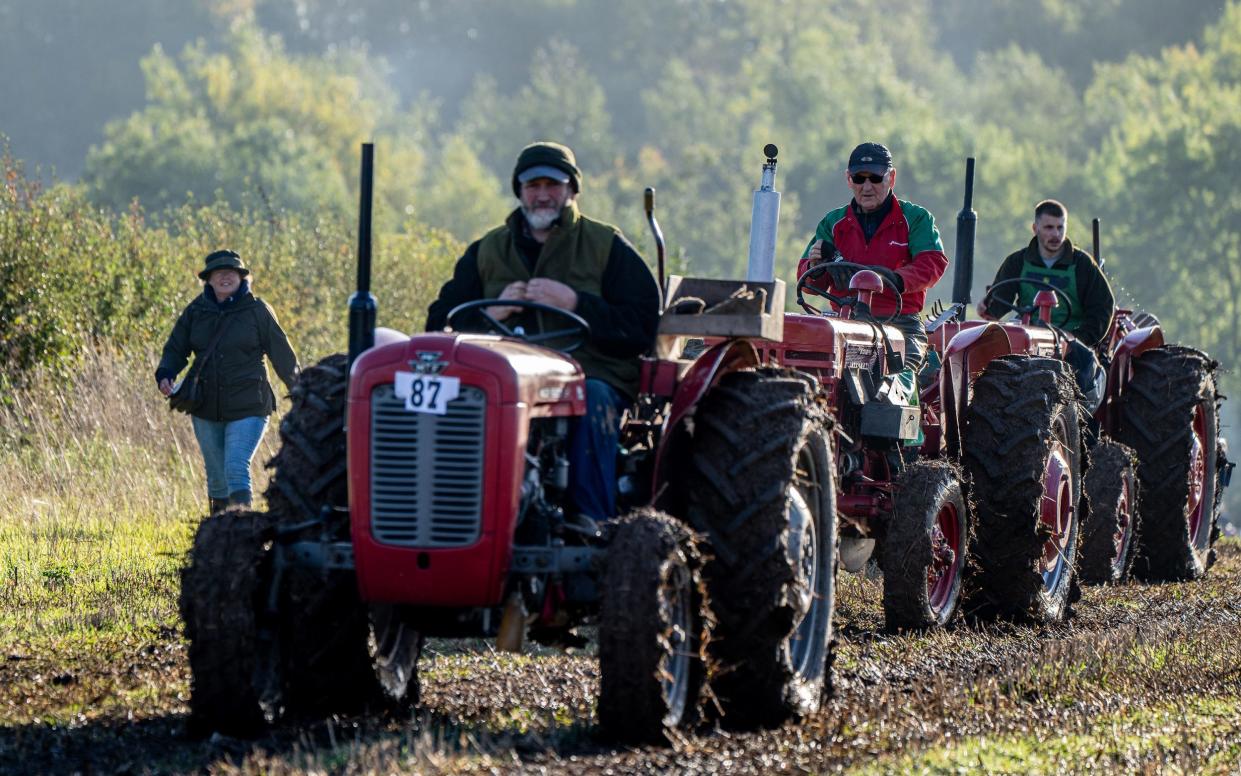Socialist renewables are corrupting British farming

Labour’s desperation to win power, and realisation that to do so they have to win more rural votes (a tall order in many households while the hated Hunting Act still stands) have been behind the honeyed words wooing farmers recently.
Their pledge to fast-track the building of wind and solar farms in the countryside will, according to them, “put money into the pockets of thousands of farmers and landowners by allowing them to profit from the generation of clean power.”
It all sounds dandy. And no doubt there will be some farmers with no hope of making a living without subsidies, while competing with new world beef grown without the same constraints, who will be seduced by this offer of a lifeline.
But if anyone thinks this is a panacea for either farming or net zero, they may be disappointed. On close inspection it looks more like a soundbite policy designed by spin doctors to get them over the line electorally, without having to address the bigger challenges facing British agriculture in a post-Brexit world, than a coherent plan designed by those with practical knowledge of farming and energy generation.
More importantly, it is just the kind of glib policy that parties parrot in opposition but then fall at the first hurdle when they meet reality post-election.
Because I don’t believe the public really wants thousands of farmers to take this step. Next time you take a train journey across Britain’s green and pleasant land, every time you see a small herd of cows imagine instead a wind turbine or a battery of solar panels in their place. Then superimpose lines of pylons in your mind’s eye to link them all up. For that is what they mean by investing in infrastructure to connect farmers to the grid.
This dissonance – allied to the power of local democracy – is why the Tories, who have also had a pretty good shot at covering the countryside in steel and concrete, have not done more.
The socialists’ new big idea of rural land-use partnerships, that give Nimbys in villages more say in how landowners manage their land, makes it even less likely that it would succeed. Then there is their implied belief that food security doesn’t matter and we should be happy for farmers to grow less food and cover their fields with other matter. But Covid reminded us that it does.
I am no Luddite. I want my farm to be an energy hub as well as producing food. But the way ahead is not to take Starmer’s inducement to cover my fields in panels and turbines to sell electricity into the national grid at a pittance, via ugly pylons that harm my tourism enterprise, so that some energy behemoth can sell it to my neighbours at a vast profit – one they ironically justify by saying they are investing in green energy.
Instead I want to put solar panels on my cattle shed rooves and invest in a micro anaerobic digestion plant – the low hanging fruit of renewables that Labour has ignored – that will turn the slurry from our dairy into electricity invisibly. Then I want to sell it direct to the local village by underground cable and cut out the middle man.
That would create an exciting alternative income for farmers. One without the corrupting effect of relying on handouts from the state and its satraps in the energy industry. But Starmer is wedded to his top-down, Stalinist five year plan that would entrench the command economy’s totem, the national grid.
The Labour leader doesn’t really like small capitalist entrepreneurs. He doesn’t want to harm the monopolies of large companies in the crony sector that he might one day nationalise. For all their smarm, Labour’s imperialist view of the countryside hasn’t really changed at all.
Jamie Blackett is a farmer and the author of Red Rag to a Bull and Land of Milk and Honey

